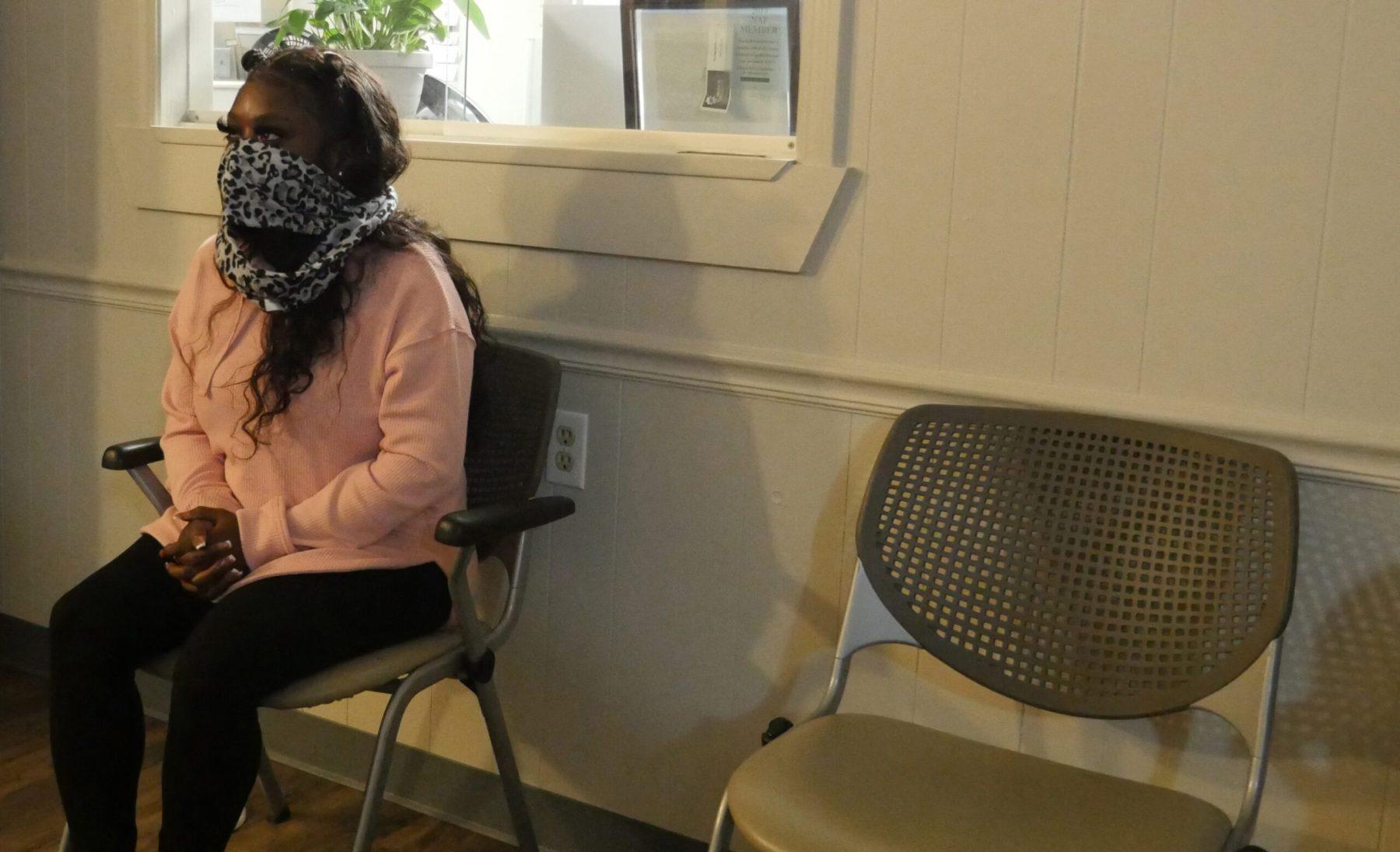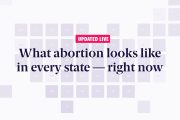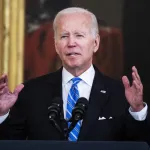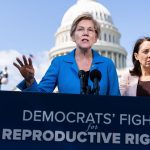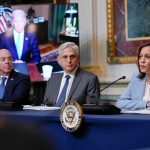In the month since the U.S. Supreme Court overturned the landmark Roe v. Wade ruling that had mandated abortion rights for nearly 50 years, the federal government has scrambled to figure out how to best support people in need of an abortion. Some lawmakers and organizations are calling for a focus on equity, asking officials to keep in mind some of the country’s most vulnerable communities: immigrants and people of color.
The White House is assessing its executive authority to push back against abortion restrictions that have been implemented around the country, but it’s unclear how its efforts are reaching people who are disproportionately affected.
This month, Democratic Sen. Alex Padilla of California sent a letter to President Joe Biden stating that “equitable access to safe abortion care is now essential.” He called on Biden to direct the Department of Health and Human Services (HHS) to implement public messaging that dispels misinformation about abortion. Padilla also said the administration should distribute resources in multiple languages, issue guidance to states on expanding federal health programs and ensure that detained immigrants have access to reproductive care.
“In this administration in particular, one of the things I’ve been excited about is the emphasis they have placed on equity and inclusion in all aspects of public policy,” Padilla told The 19th.
“We know who’s disproportionately hurt by the loss of these protections: It’s communities of color, immigrant communities, lower-income communities. So if we’re committed to equity not only in health care broadly, but also when it comes to reproductive care, then we have to be mindful in how we respond.”
Research has indicated that groups that already experience marginalization in health care generally are also disproportionately affected by abortion restrictions. As The 19th previously reported, when abortion clinics close, low-income people also lose access to other reproductive health services.
One analysis focusing on immigrants who had abortions found that 51 percent of them were in their 20s, 51 percent had “poverty-level” or “near poverty-level incomes,” and 45 percent were uninsured.
In the general population, among specific racial groups, non-Hispanic Black people are the most likely to seek abortions with a rate of 23.8 abortions per 1,000 women, according to 2019 data from the Centers for Disease Control and Prevention. This compares to rates of 11.7 abortions per 1,000 Hispanic women and 6.6 abortions per 1,000 White women.
A number of the states with the most restrictive abortion policies, like Texas, South Carolina, Mississippi and Alabama, are also among the states with the largest Black populations.
The abortion restrictions are just part of a host of broader concerns Black communities face regarding health care and their well-being, Democratic Rep. Cori Bush of Missouri told The 19th.
“Yes, Black women seek out abortion care services more than White women, but the other various barriers to us also play a part,” said Bush, a former nurse and community activist who has spoken publicly about her own experience getting an abortion. These barriers include access to insurance, economic hardship and experiences with sexual violence, she said.
The full scope of how the Biden administration plans to address the specific reproductive needs of people of color and immigrants remains unclear. About two weeks after the Supreme Court overturned Roe, The Wall Street Journal reported on a memo issued by U.S. Immigration and Customs Enforcement (ICE) clarifying that pregnant people in ICE custody have access to abortion services when requested.
In response to questions from The 19th, the White House pointed to the federal ReproductiveRights.gov website, which has information about abortion, medication and birth control access in English, Spanish and Chinese. The White House has produced Spanish-language social media content on the issue as well. While English and Spanish are spoken by the most people in the country, Cantonese, Mandarin, Tagalog, Vietnamese and Arabic are the next most common, according to the World Economic Forum.
The administration’s response to the Dobbs v. Jackson Women’s Health Organization ruling that overturned Roe has come piece by piece. The president signed an executive order on July 8 that discussed expanding access to medication abortion and education about other legal abortion services. HHS also clarified on July 11 that federal law protects the ability to have an abortion as part of emergency care. The administration said on July 13 that pharmacies cannot deny people birth control or emergency contraception.
-
Read Next:
In his remarks on reproductive rights ahead of signing the July 8 executive order, Biden did not specifically mention ways that communities of color are affected by abortion restrictions nor how the administration plans to address specific barriers they may face.
Vice President Kamala Harris has been a more visible presence in discussing the effects of abortion restrictions for Black communities. She has spoken about the issue at the NAACP National Convention — though she did not say the word “abortion” — and Essence Festival this month, as well as with Black community faith leaders. She must also navigate the mixed feelings about abortion among Black Americans, who, despite being loyal Democratic voters, skew more conservative on abortion than Democrats overall.
So far, a number of organizations that serve communities of color and immigrants have expressed tepid responses to the administration’s efforts. According to the National Asian Pacific American Women’s Forum (NAPAWF), the White House has reached out to learn more about ways to support their communities. NAPAWF helped gather legal experts, community health and health equity professionals to speak with the White House about ways to provide culturally competent resources to people and the fears they have about criminalization of reproductive services, Yvonne Hsu, NAPAWF’s chief policy and government affairs officer, told The 19th. She added NAPAWF is encouraging the administration to do more.
Following Biden’s order, Monica Simpson, the executive director of SisterSong, a prominent reproductive justice group that focuses on people of color, issued a statement praising Biden for “showing an understanding of the urgency of this moment.” Simpson added that “the executive order is nowhere near enough to be effective in protecting us from the state-level bans and criminalization of abortion permitted by a Supreme Court steeped in white supremacy.” When asked by The 19th for follow-up comment, SisterSong did not provide one by the time of this story’s publication.
Lupe M. Rodríguez, the executive director for the National Latina Institute for Reproductive Justice, also commended Biden on the executive order, adding that there is “a ways to go” for the administration to provide specific details on how the order will be implemented. For their organization, that includes pushing for ways to protect undocumented immigrants who live in states with abortion restrictions and may not be able to travel to other states with more protections.
“We know that travel and child care, and all of the myriad barriers that folks face to being able to get the care they need outside of their communities, are huge impediments right now,” Rodríguez told The 19th. “We’re really interested in advancing a conversation with them about the extent that the administration can support with mitigating the impact of the lack of resources as well as providing those resources.”
